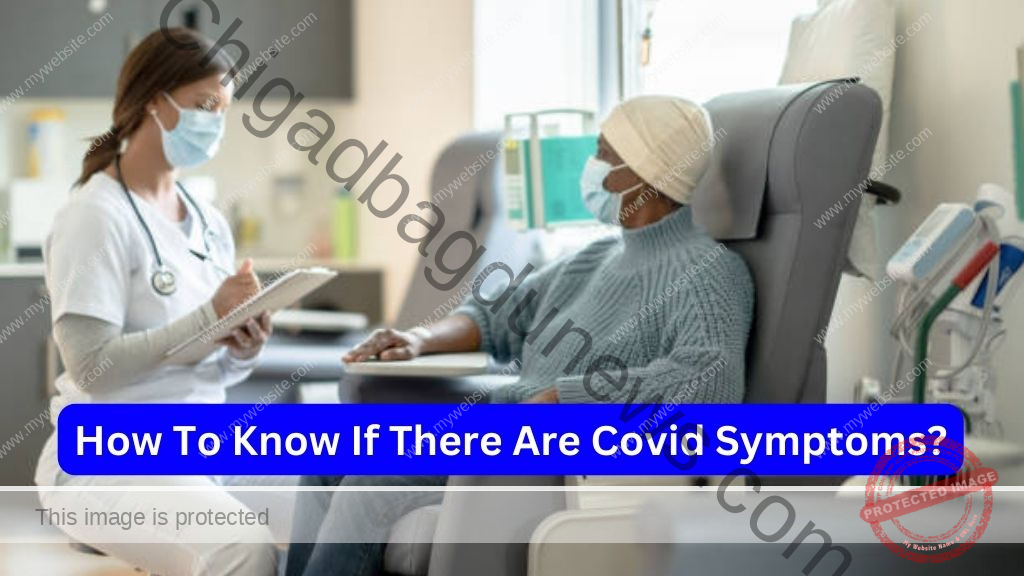Understanding the signs of COVID-19 is essential for early detection and stopping the virus’s transmission as it continues to impact communities throughout the globe. Protecting yourself and others can be achieved by being aware of the warning signals and knowing when to seek medical assistance.
This page offers a thorough how-to guide for recognizing COVID-19 symptoms, advice on what to do in their case, and answers to frequently asked questions.
Common COVID-19 Symptoms
After being exposed to the virus, 2–14 days may pass before experiencing mild to severe COVID-19 symptoms. The following are some of the most typical symptoms:
- Fever or Chills: One of the most common signs of COVID-19 is a high temperature. Taking your temperature on a regular basis can help identify a fever early.
- Cough: Another typical symptom is a dry, persistent cough. A respiratory infection may be the cause of your cough if it gets worse or starts to produce mucus.
- Shortness of Breath or Difficulty Breathing: Breathing difficulties or a dyspnea may indicate COVID-19, especially in more severe cases.
- Fatigue: Even if other symptoms are minimal, a lot of COVID-19 patients report having severe exhaustion or tiredness.
- Muscle or Body Aches: Aches and pains in general are prevalent, and they resemble the flu.
- Headache: Fever and exhaustion are two symptoms that might coexist with a headache.
- New Loss of Taste or Smell: One of the hallmark symptoms of COVID-19 is sudden loss of taste or smell.
- Sore Throat: Other symptoms may coexist with a sore throat, which is usually minor.
- Congestion or Runny Nose: Runny nose or nasal congestion are also possible symptoms, though they are less often.
- Nausea or Vomiting: Sometimes people experience symptoms related to their digestive system, such nausea or vomiting.
- Diarrhea: An other potential symptom, however less frequent than respiratory symptoms, is diarrhea.
Also Read – How Many Steps In A Mile Walk: Know the Right Way
What To Do If You Have Symptoms
It is imperative that you take the following actions if you encounter any of the symptoms mentioned above:
- Stay Home and Isolate: To stop the virus from infecting others, stay at home if you start to feel sick. As much as you can, keep yourself apart from other family members.
- Get Tested: To find out if you have the virus, schedule a COVID-19 test. Community testing sites, pharmacies, and healthcare practitioners can all conduct testing.
- Monitor Your Symptoms: If your symptoms increase, pay attention to them and get medical help, especially if you have trouble breathing, a persistent chest ache, dizziness, or bluish lips or face.
- Follow Public Health Guidelines: Respect community health standards about social distancing, mask wearing, and seclusion in order to keep others safe.
Also Read – Understanding the Dose of Meloxicam for Various Animals and Humans
Common COVID-19 Symptoms and Actions
| Symptom | Description | Recommended Action |
| Fever or Chills | Elevated body temperature | Stay home, monitor temperature |
| Cough | Persistent, dry cough | Stay home, get tested |
| Shortness of Breath | Difficulty breathing or breathlessness | Seek medical attention if severe |
| Fatigue | Unusual tiredness | Rest, stay hydrated |
| Muscle or Body Aches | General aches and pains | Rest, over-the-counter pain relief if needed |
| Headache | Persistent headache | Stay home, monitor symptoms |
| Loss of Taste or Smell | Sudden inability to taste or smell | Stay home, get tested |
| Sore Throat | Pain or irritation in the throat | Stay home, get tested |
| Nausea or Vomiting | Upset stomach or vomiting | Stay home, stay hydrated |
| Congestion or Runny Nose | Nasal congestion or runny nose | Stay home, monitor symptoms |
| Diarrhea | Frequent, loose stools | Stay home, stay hydrated |
Also Read – How Long Does COVID-19 Last 2024?
Frequently Asked Questions
1. Can I have COVID-19 without showing symptoms?
It is true that an asymptomatic COVID-19 carrier can have the virus. Testing and preventive actions are crucial since asymptomatic individuals can still spread the infection.
2. How long should I isolate if I test positive for COVID-19?
After symptoms appear, it is advised to isolate yourself for at least five days. If, after five days, you have not needed fever-reducing medication for a whole day and your other symptoms have subsided, you can be released from isolation. Consistently adhere to the most recent directives from health authorities.
3. What should I do if my symptoms worsen?
Consult a doctor right away if your symptoms get worse, especially if you have trouble breathing, chronic chest pain, disorientation, or pale lips or face. These may indicate a serious case of COVID-19 and need for immediate medical attention.
Also Read – Understanding the Dose of Meloxicam: A Comprehensive Guide
Conclusion
Protecting yourself and others requires being aware of the signs and symptoms of COVID-19 and acting appropriately. The virus’s ability to spread can be reduced by early discovery and adherence to public health recommendations. To guarantee a secure and speedy recovery, if you encounter any symptoms, stay at home, get checked out, and heed medical advice.
You may help stop the spread of COVID-19 by being aware of the typical signs and knowing when to get medical help. Prioritize the health of others around you as well as your own by remaining knowledgeable, cautious, and healthy.
Managing the virus and preserving public health can be greatly impacted by early detection and rapid action in response to COVID-19 symptoms. To get through these trying times safely, remain alert, abide by health regulations, and seek medical attention when necessary.
